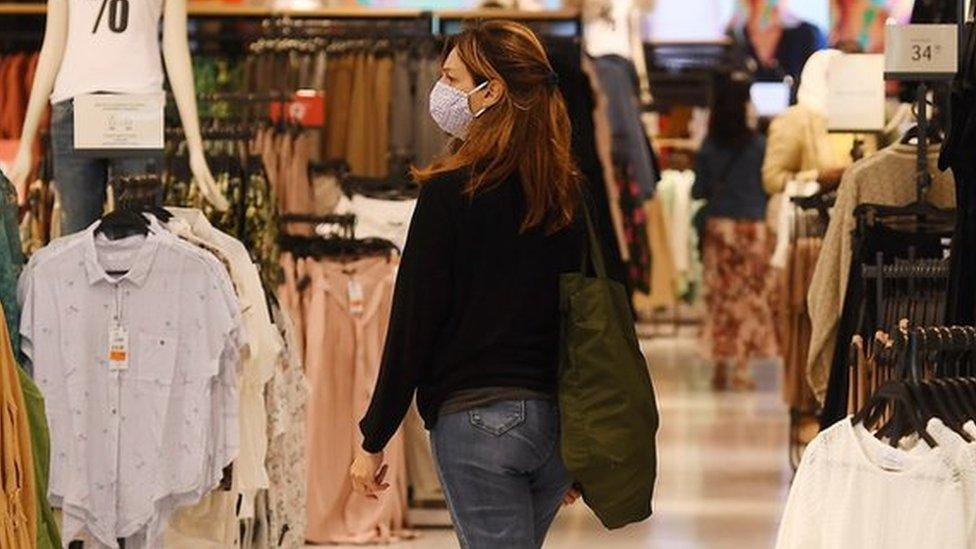Coronavirus: New face covering rules in force in England
- Published
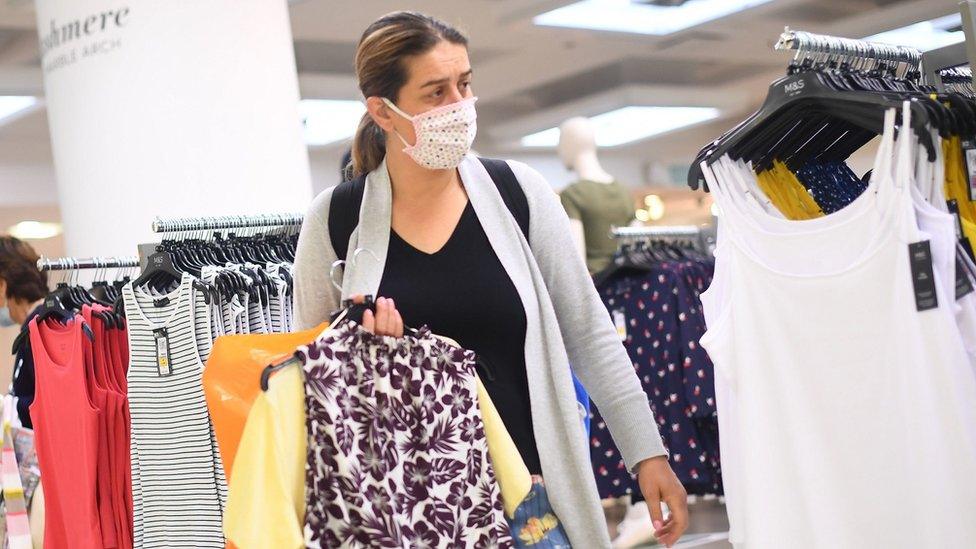
Face coverings are now compulsory for customers in shops in England, after new coronavirus rules came into force within 12 hours of the government issuing guidance on the change.
Coverings are mandatory in enclosed public spaces such as supermarkets, indoor shopping centres, transport hubs, banks and takeaways.
Police can hand out fines of up to £100 to those who do not comply.
But some retailers have insisted they will not enforce the rule.
The deaths of another 123 people in the UK who have tested positive for Covid-19 been announced, taking the number to have died to 45,677. There were also a further 770 cases confirmed through testing.
Prime Minister Boris Johnson said the government's ability to ease social-distancing measures and face-mask rules depended on it being able to drive down the level of the virus.
"The message is - we have done very well, the virus is under control to a very large extent but it is still there," he said during a visit to a GP surgery.
He said he believed the UK would be "well past" coronavirus by the middle of next year, saying: "We have tough times ahead in coming through economically, but I have absolutely no doubt that we are going to, and this country is going to bounce back stronger than ever before."
Costa Coffee said their staff would not challenge customers who entered their stores without masks.
Sainsbury's also said that staff members would not be individually responsible for challenging customers - but added that stores would have regular Tannoy announcements asking customers to follow the new rules.
Asda said enforcement was the "responsibility of the relevant authorities".
Waitrose has positioned staff at shop doors reminding customers of the rule, and Tesco is selling face coverings at store entrances.
Greggs and McDonalds say takeaway customers need to wear masks.
According to guidance issued by the government, external on Thursday for England, staff in premises where face coverings are required are encouraged to take steps to "promote compliance with the law" and can refuse entry to people who do not have a valid exemption under the rules.
But the government says it was the responsibility of individuals to wear a covering.

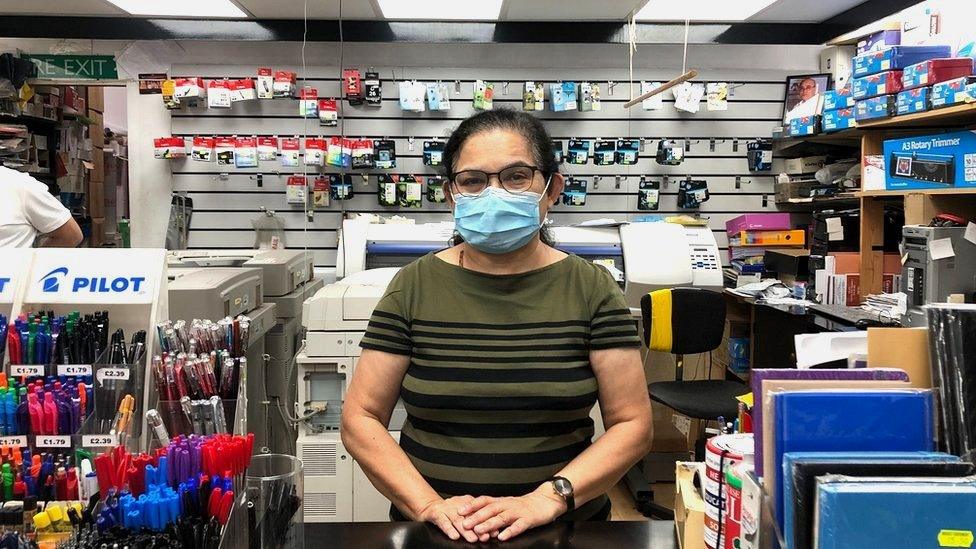
Ragini Patel says one customer was aggressive when she reminded him of social distancing rules
'You don't want to get in trouble'
By Hazel Shearing
"Oh, better put our masks on," a woman says to her friend outside a homeware shop in Camberwell. He shrugs and follows her inside, opting to go without.
Most people are wearing face coverings inside the shops on this South London high street, but this exchange sums up the dilemma for some shopkeepers.
Ragini Patel says she asks customers to wear face coverings in her stationery shop, but some older customers, in particular, don't listen.
"There's no point saying anything to anybody, you don't want to get in trouble," she shrugs.
In Scope charity shop, Dawn Suleyman says only one customer has come in today without one - and was grateful when she handed her a spare.
"I wouldn't say to someone 'you can't come in because you haven't got a mask on'," she says. "I'd explain to them, 'You do realise that you could possibly get a fine? And if you haven't got a mask I'm happy to give you one'."

How not to wear a face mask
Police will be able to "use force" to remove customers from shops if they do not wear face coverings, or to prevent them from entering, according to the College of Policing.
But individual forces have said they will only be enforcing the rules, including issuing fines, as a last resort - and officers will not be patrolling premises.
Health Minister Helen Whately said the government was confident "the vast majority of people" would comply with the regulations.
In Scotland, where face coverings in shops became compulsory on 10 July, one person has been fined for failing to wear one.
There are exemptions to the new rules for children under 11, those with disabilities or certain health conditions, such as respiratory or cognitive impairments that make it difficult for them to wear a face covering.
Ms Whately said people could print out a card from the government's website, external to show they were exempt if they wished, but stressed people would not be expected to carry proof of an exemption.
Public Health England has warned parents not to buy coverings for babies and young children because of the risk of choking or suffocation.
Masks will not be mandatory in indoor venues that have other safety measures in place, including:
Eat-in restaurants
Pubs
Hairdressers and salons
Gyms and leisure centres
Cinemas, concert halls and theatres
Visitor attractions such as museums
Libraries

'I don't like being confronted'
For some people with certain health conditions or disabilities, wearing a mask can be more difficult.
Kerise Vowles-Myners, who has autism, had a particularly bad experience when she tried wearing one to visit the doctor last week.
"I literally had it on for two minutes and had a panic attack and threw up in public - it was quite embarrassing," she told BBC Radio 4's Today programme.
Kerise said she had spoken to her social worker about going shopping for her when she had bad days.
"I don't like being confronted because I have to explain myself," she said.
"Whenever I go out, a lot of people don't even realise that I'm on the spectrum so they just look at me and think, 'Oh she is just a normal person, why is she not wearing a mask?'"

Retail and trade organisations have criticised the government over the time it took to publish guidance on masks - after the changes were announced 10 days ago.
Meanwhile, union leaders voiced fears the rules could put workers' safety at risk if people refused to wear a mask or became abusive.
The British Retail Consortium called on customers to be "respectful" of the new rules, while UK Hospitality chief executive Kate Nicholls said takeaway outlets had been left with "a very short time to properly brief staff, prepare signage and take steps to encourage compliance".

SOCIAL DISTANCING: What are the rules now?
PUBLIC TRANSPORT: Is it safe to travel?
TWO METRES: Could less than 2m work?

According to the government,, external face coverings should cover the mouth and nose and can be as simple as a scarf or bandana that securely fits around the side of the face without having to be held in place.
The requirement to wear face coverings at transport hubs - railway and bus stations, airports and maritime ports - only applies for areas which are fully indoors and enclosed.
You are allowed to remove a face covering in certain situations, for example to prove identification in banks or when buying age-restricted products.
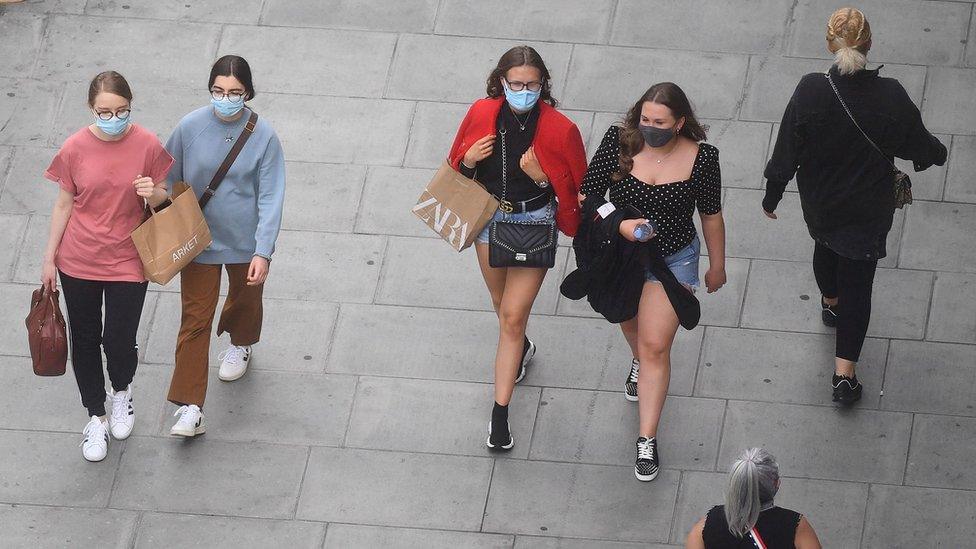
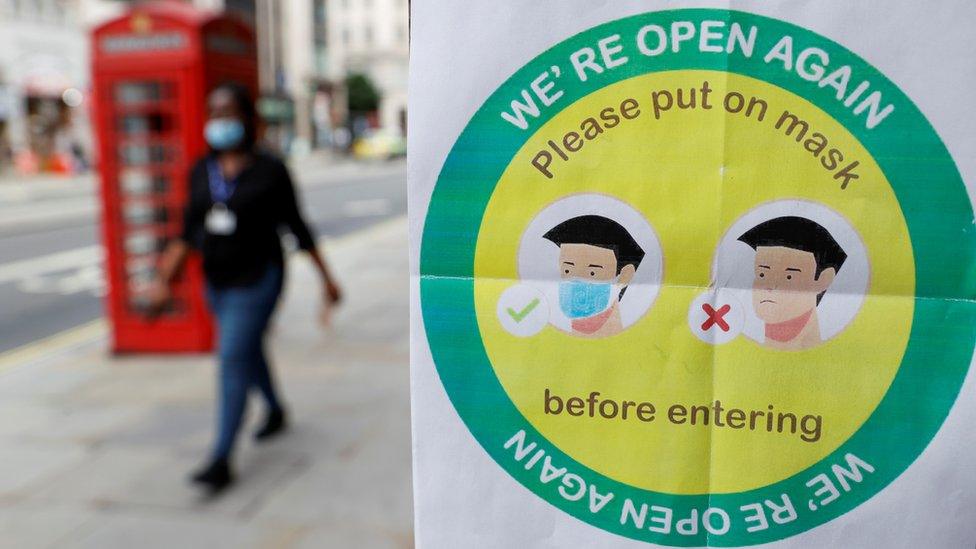
Face coverings have been compulsory in shops in Scotland since 10 July. Shoppers are not currently required to wear them in Wales or Northern Ireland, although NI will wait until 20 August before deciding whether to make them compulsory.
Coverings are already compulsory on public transport in England and Scotland, as well as most buses, trains and ferries in Northern Ireland. They will be mandatory on public transport in Wales from 27 July.

'COVIDIOTS', 'LOXIT', 'ZUMPED': Examining the language we've learnt in lockdown
ALHAN ON FAMILY: Navigating post-lockdown relationships




What questions do you have about face coverings?
In some cases your question will be published, displaying your name, age and location as you provide it, unless you state otherwise. Your contact details will never be published. Please ensure you have read our terms & conditions and privacy policy.
Use this form to ask your question:
If you are reading this page and can't see the form you will need to visit the mobile version of the BBC website to submit your question or send them via email to YourQuestions@bbc.co.uk, external. Please include your name, age and location with any question you send in.
- Published13 January 2021
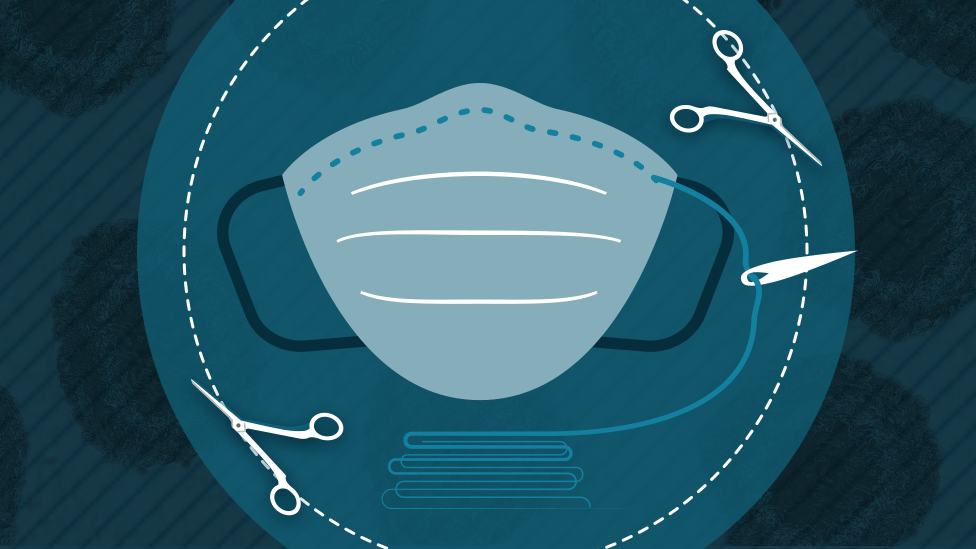
- Published24 July 2020
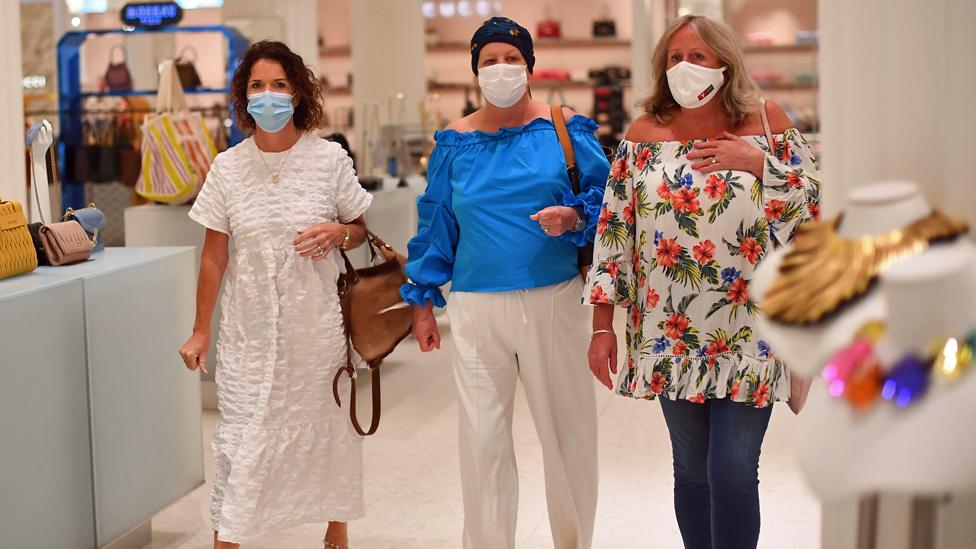
- Published16 March 2022
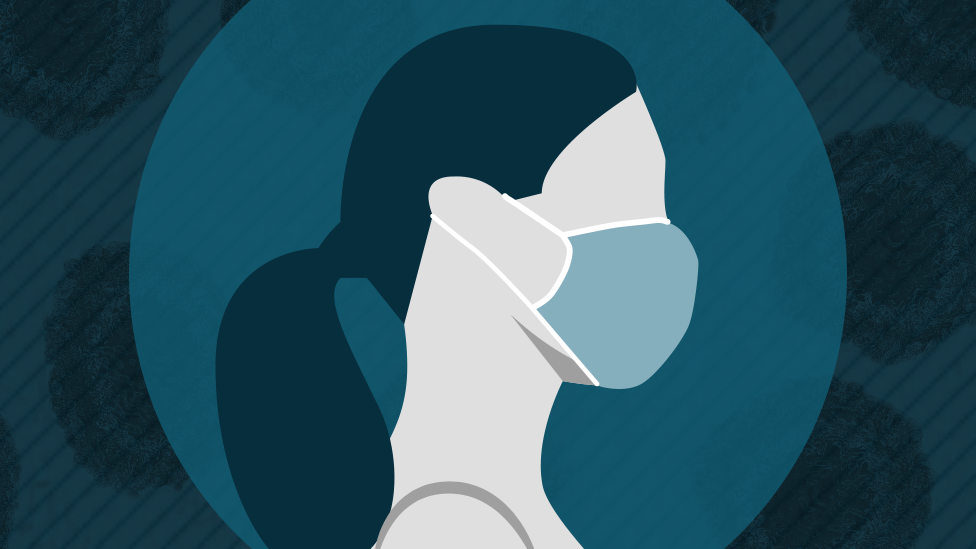
- Published15 July 2020
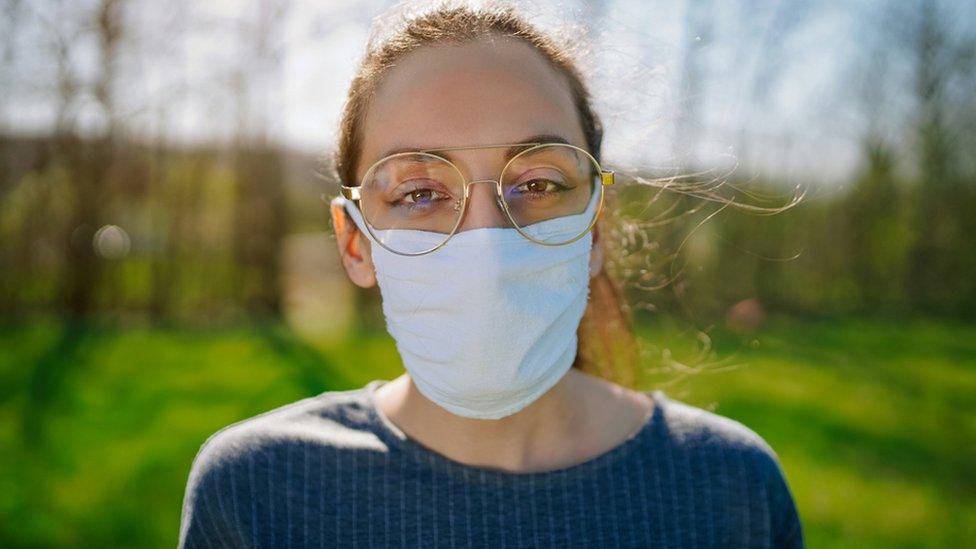
- Published15 July 2020

- Published15 July 2020
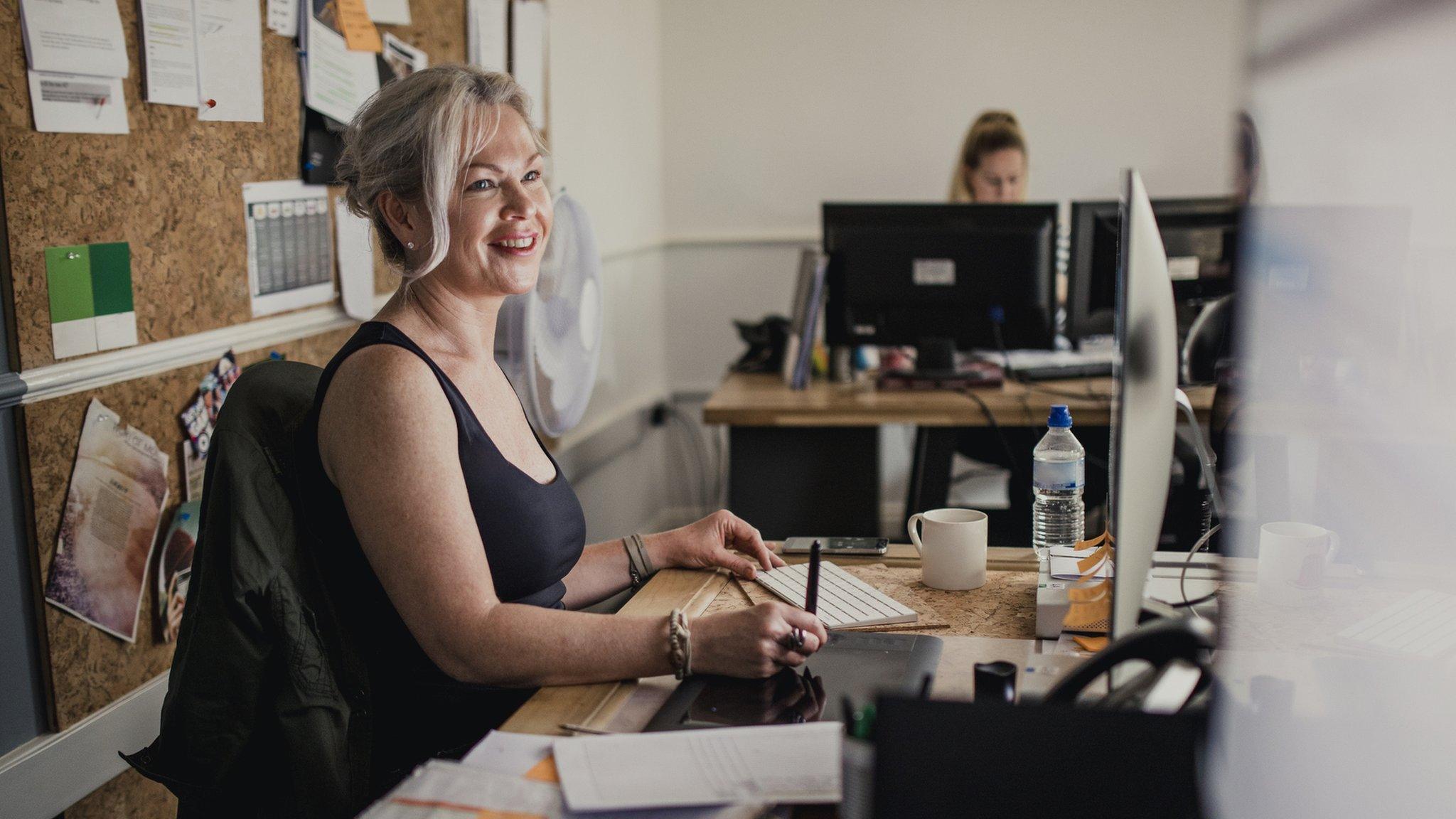
- Published14 July 2020
